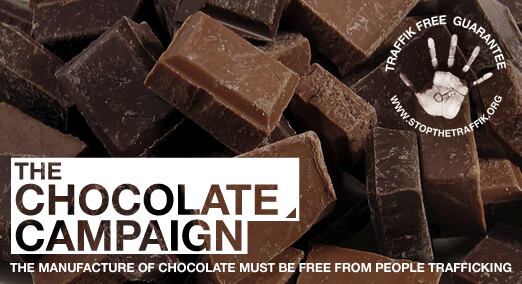Several NGOs have responded to a recently revisited child slavery case against manufacturer Nestlé and suppliers ADM and Cargill with claims that child labor and human trafficking in the sector is far from eradicated.
Discussing the case, the non-profit development organization, Suedwind Institute, told ConfectioneryNews that it believed all companies who used and use cocoa from West Africa – which accounts for 70% of world production – still have child labor in their value chain.
Old scars, ongoing problem?
The three firms face allegations of aiding and abetting the trafficking of three children to the Ivory Coast, where it is alleged they worked unpaid on a farm which produced cocoa for the companies in the 1990s. The trio denies the as yet unproven allegations recently forwarded to Californian courts. They say child labor has no place within their supply chains and maintain that they respect international law.
Friedel Huetz-Adams, commodities specialist for the Suedwind Institute, told ConfectioneryNews some farms in West Africa still use child slave labor, but that other children may work on the farms safely after school.
He maintained that child labor is still a huge problem in the sector, making reference to a report from the International Cocoa Initiative which claims at least 300,000 children work in cocoa production in the Ivory Coast and Ghana, the world's first and second cocoa producers respectively. The same organisation simultaneously speculated that this figure could be as high as one million or more.
Huetz-Adams said there had been a tendency for companies to pass the blame on to the independently run farms. “For a long time they saw what was going on in the plantations but did not invest to change this. They started late to try to make a change, it can be disputed if they do enough and need pressure to do more,” he said.
He said that while sustainability programs could change and had arguably made way in alleviating this situation the majority of the farmers have not been reached yet.
Carolyn Kitto, lead activist at NGO Stop the Traffik, told ConfectioneryNews that since the Harkin-Engel report in 2001 it has been known that human trafficking is an ongoing and deep-seated problem in the cocoa industry and that organisations like her own continue to hear of “verifiable on the ground cases” of human trafficking.
Pricing pressures
Huetz-Adams said that wide spread child labor including child slaves around the year 2000 were a result of the massive decrease in farmers’ income due to record low cocoa prices at the time. He said everybody in the industry knew that since the main cost factor to farmers is labor, you cannot pay adult laborers if prices are too low.
One NGO source, who preferred not to be named, claimed that recent pressures to boost productivity after a crisis in the commodity’s availability may have fuelled the problem. He said it was not difficult to see how pressure to produce more may result in pressure to recruit more workers including children who they may or may not pay fairly and limit to safe, after school tasks.
“Too little, too slow”
Huetz-Adams said legally binding obligations could help level the playing field saying currently companies that have created initiatives are not being rewarded by the market but instead must absorb higher

commodity prices or charge higher prices for products. “At the moment companies who invest in improvement are the “stupid” ones,” he said
He said sustainability programs could change the situation, but the majority of the farmers are not being reached yet. “It is crucial to increase their income by training them to reach a higher productivity, a better quality and to diversify their production. But it is not yet clear if the current cocoa price (which is inflation adjusted at half the level of 1980) will allow them to escape poverty,” he said.
Cargill is one of many companies with sustainability initiatives with targets concerning productivity and social issues.
Stop the Traffik’s Carolyn Kitto said the industry’s self-regulation has been too little and too slow. “We of course welcome all these pledges but a promise is not a delivery of action. The cocoa industry has been quick to promise and slow to deliver. We are not talking about small companies without the capacity to act,” she said.
In an entirely separate case, a shareholder of American chocolate manufacturer Hershey claimed the firm had company records containing evidence of abuses including forced labor and human trafficking. While a Master in Chancery advised the case be dismissed for lack of evidence last September, a final verdict has yet to be reached.
